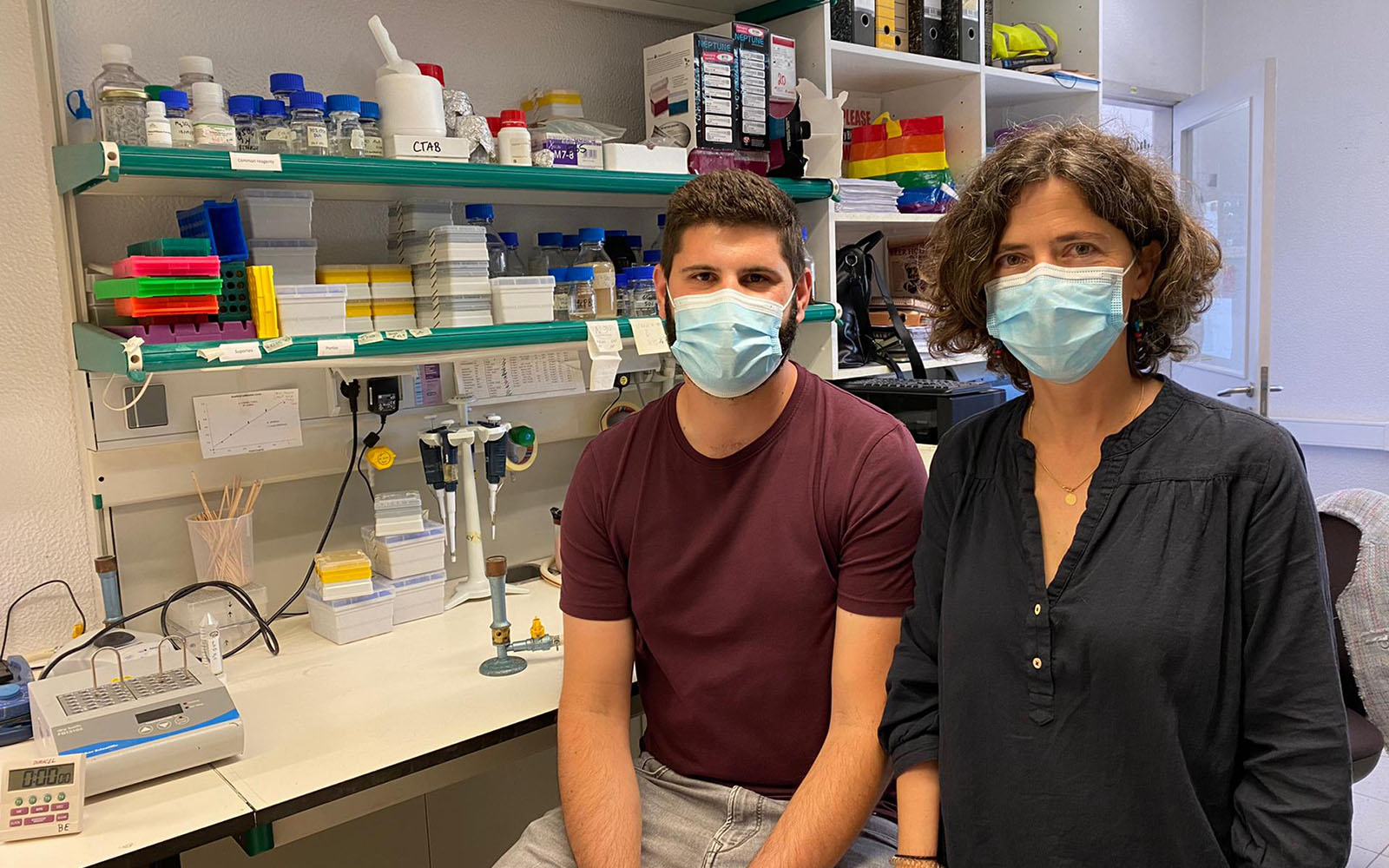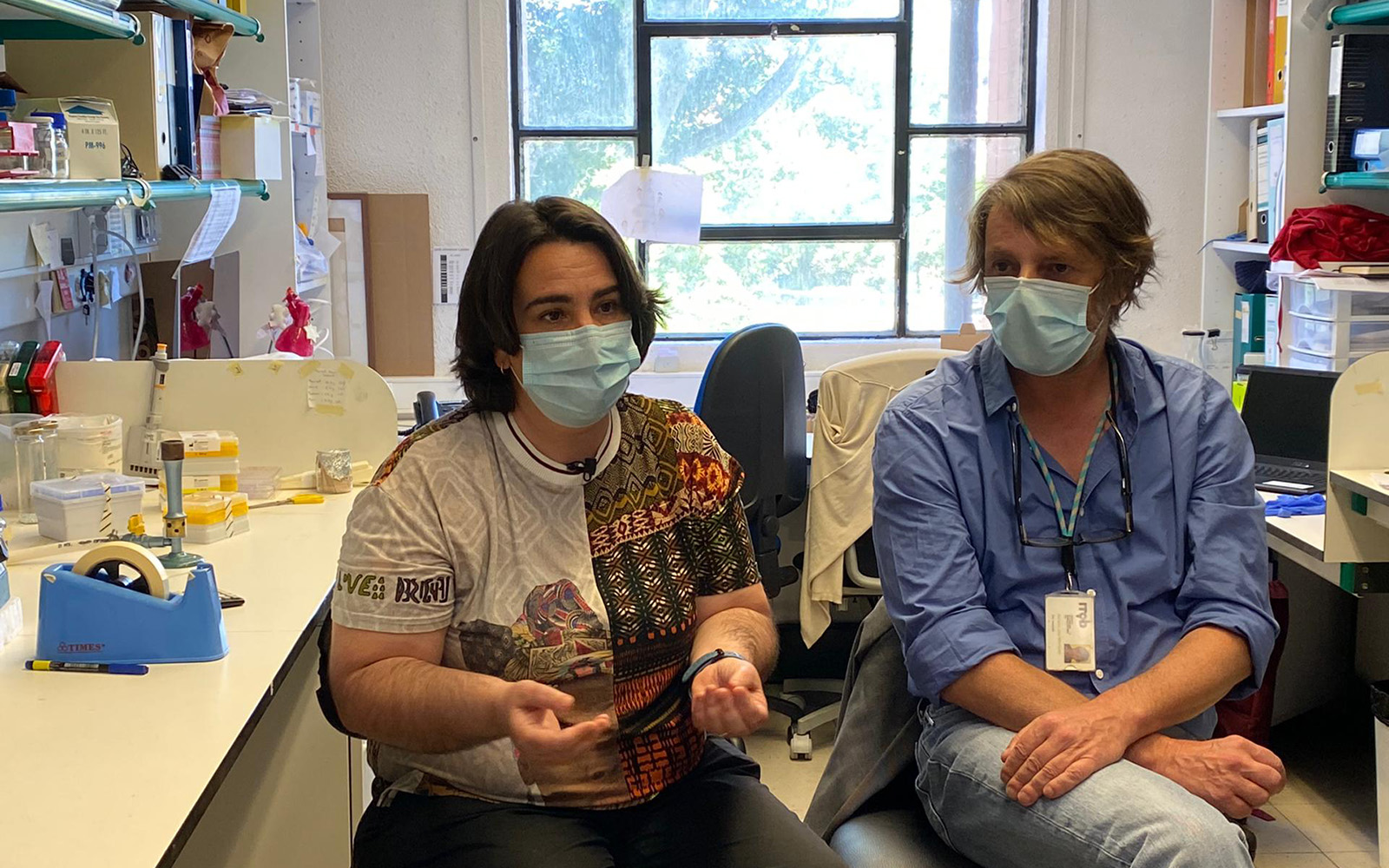Oral SARS-CoV-2 vaccine uses bacteria to induce antibodies
Oeiras, 30 june 2021
Bacteria with SARS-CoV-2 virus proteins on their surface are the basis of a potential oral vaccine under study by researchers from IGC and ITQB NOVA, in a joint effort to find more tools to fight the COVID-19 pandemic. The second phase of the research will evaluate the immune system response and the protection against infection after taking this vaccine.
The main tools to fight the pandemic include vaccination and personal protective measures. Although several vaccine options are already on the market, production limitations and universal availability are still a challenge. The idea of developing an oral vaccine using bacteria is not new and can be rapidly scalable and cost-effective, reaching more people in areas where refrigeration chains and vaccine delivery capacity may be limited.
For several years, the Gulbenkian Institute of Science and ITQB NOVA have been studying the different bacteria with which we live and the potential of some of them to induce the production of antibodies against disease. The discovery that a modified bacterium can lead its host to develop antibodies against malaria, the ability to trigger an immune response in the gut, and the study of the ability of bacterial spores to act as vehicles for the transport of proteins of interest are some of the previous studies crucial to launching this SARS-CoV-2 project.

Hugo Barreto (IGC) and Mónica Serrano (ITQB NOVA)
Isabel Gordo, principal researcher at the IGC, has been studying bacteria and their interaction with the body for over 10 years. Bringing together the knowledge already produced by the IGC's multidisciplinary team in recent years was critical. "We envisioned expressing a part of Spike's protein in a bacterium, administering it as a probiotic and stimulating an immune response capable of coping with the infection caused by SARS-CoV-2." At ITQB NOVA, researchers Adriano Henriques and Mónica Serrano have also been studying for decades bacterial spores, metabolically dormant cellular structures capable of resisting extreme environmental conditions. "The spores formed by certain bacteria are capable of surviving when exposed to extreme physical and chemical conditions. This characteristic ensures that the bacteria administered orally are intact when they reach the gut, where they will come into action and stimulate the immune system," explains Henriques. "The resistance properties of the spores are also an advantage for their storage and transport, which do not require a cold chain", he adds.

Isabel Gordo (IGC) and Adriano Henriques (ITQB NOVA)
The researchers from the two institutes have jointly developed a recombinant bacterium that produces spores with part of the Spike protein of the SARS-CoV-2 virus on its surface. That part of the Spike protein is responsible for binding the virus to the host and can trigger a protective immune response. "The results of the first experiments are very promising and lead us to move on to the next phase, in which we will evaluate the necessary amount of spores to administer to the host, to ensure an adequate response, and to test it in an animal model exposed to the virus to assess the ability to respond to the disease," explains Isabel Gordo. This vaccine will facilitate production in high numbers, with reduced costs and easy adaptation to new variants. In the last stage of the project, the vaccine will be tested in a protected laboratory environment, as required for tests involving the active SARS-CoV-2 virus. The study will take place in a new level 3 Biosafety laboratory at IGC.
This project is based on a strategy focused on the mission and values of the Calouste Gulbenkian Foundation to improve the quality of life of the population and as a contribution to equal opportunities in society, and of ITQB NOVA to promote science and technology for the benefit of human health and the environment.









